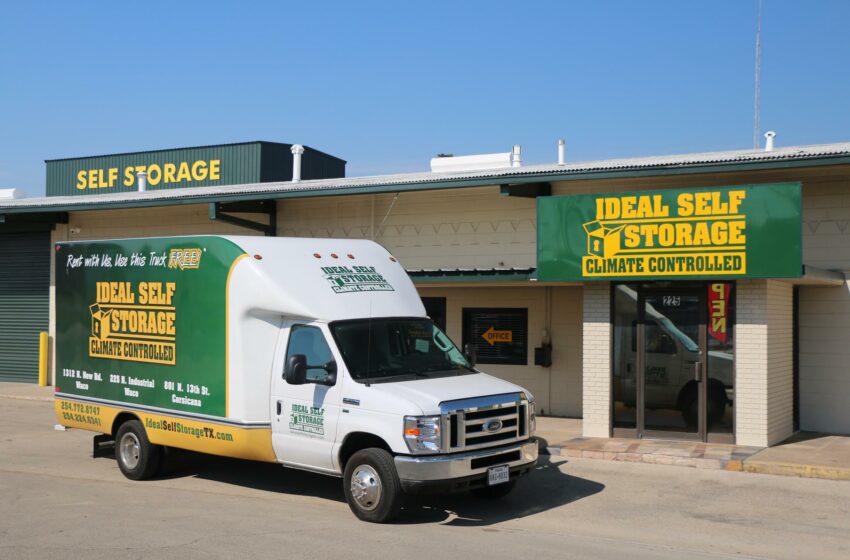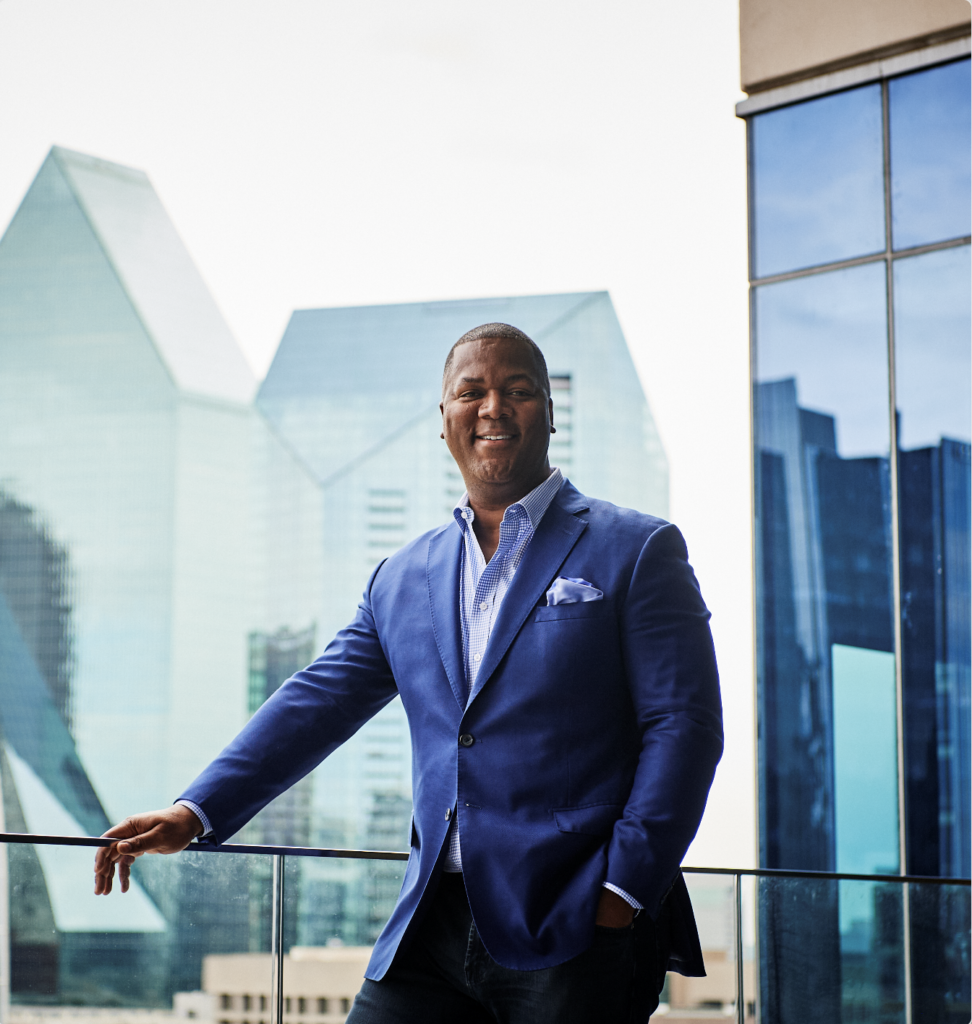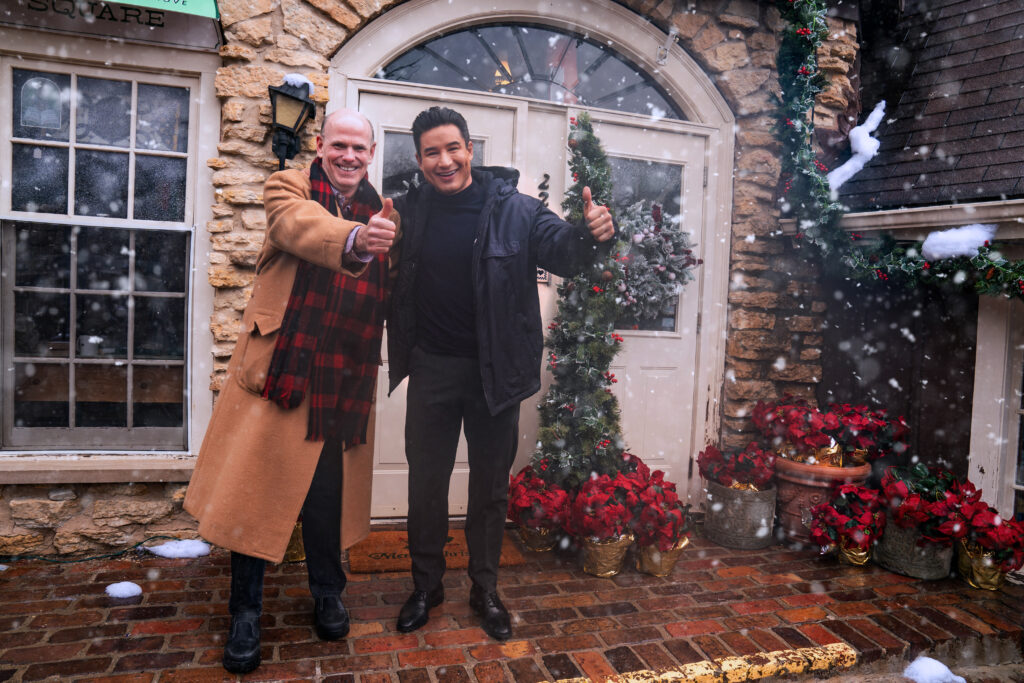Making Space for a Growing Waco

Native Wacoan Chris Martin, president of Ideal Self-Storage, sees changes in his industry—but he doesn’t think Central Texans are giving up extra space to store their stuff anytime soon.
According to the Self-Storage Almanac, there are nearly 50,000 self-storage facilities in the United States today.[1] As Chris Martin notes in this conversation, that’s significantly more locations than McDonald’s and Starbucks have in this country combined.

A great big portion of those facilities are in Texas, and they include Martin’s Ideal Self Storage. Given his industry, Martin has a finger on the pulse of Waco and Central Texas more broadly—who’s moving in, who’s moving out, where they’re going to or coming from. No surprise that he’s seen a growing wave of transplants into the area, all of whom he’s happy to give space in one of his facilities, located in Waco, Gatesville, Mexia, Corsicana, Ennis, and Belton. Martin spoke to us about the ongoing shifts in his industry, the recent blossoming of Waco, and why—even post–Marie Kondo—people are still keeping so much stuff in storage.
Texas CEO: How did you get started in the self-storage industry?
Chris: In my senior year of high school, I was a manager at a self-storage facility. When I would come back to Waco from college to visit my parents, I’d see that business growing and growing.
Later, in 2008, I started dabbling in real estate and distressed assets. I procured my first distressed Kmart in 2010 and converted it into a climate-controlled self-storage facility. That was my liftoff point. I’m now sitting at eight self-storage facilities, six of them converted from big-box retail stores or factories.
We try to repurpose dilapidated buildings that are sitting there like a black eye on a town or city. They look bad and attract crime. We clean them up and turn them into a place where people can store their valued belongings. I intend to stay in the industry and create a legacy business for my children.
Texas CEO: Your properties are centered around Waco and other smaller cities in Central Texas. Do you have a strategy on where you open new locations?
Chris: I’m not afraid of the smaller markets. I feel like I can compete better on a smaller scale versus going against the larger private equity groups and capital groups that have been attracted to the industry since the last recession [of 2008]. The REITs [real estate investment trusts] are heavily involved in self-storage now, and they focus on the primary markets. I’m still the little guy in the secondary and tertiary markets.
Texas CEO: How do you feel about private equity being so active in the industry recently?
Chris: It’s a double-edged sword. It’s like a lot of other industries—there’s so much consolidation, and the mom and pops are having a hard time competing against the big guys. When I first entered the industry, most of the self-storage facilities in the country were owned by mom and pop. Now we’re around 55 percent. So there’s been a lot of consolidation.
But at the same time, the whole industry is expanding. Another interesting number I heard recently is that there are more self-storage facilities in the country than there are Starbucks and McDonald’s combined. Most people don’t really pay attention to them, but it you start looking out for self-storage businesses, you can see how it’s a multimillion-dollar business.
Texas CEO: We Americans love our stuff, right?
Chris: That’s right.
Texas CEO: Do you do think it’s going to keep going that way, or will Americans want to get rid of some of their stuff sooner or later?
Chris: I’m a big proponent of minimalism, but I don’t see a big trend in people getting rid of their belongings. I see construction costs going up and people having smaller houses. At the same time, you can finance anything now, so people can afford to buy more things. Not to mention Amazon.com, which makes things just show up at your door overnight.
Plus, around 35 percent of our business is commercial customers, everything from furniture suppliers to small distribution and drop-ship outfits. One of our customers receives giant pallets of breast pumps, then uses the storage space to split the pallets into individual boxes and ship them off to people. Other businesses use units for document and record storage. Rent per square foot for a lot of those businesses is driving up, and especially with COVID, lots of people are realizing they don’t need an office. For some, a storage facility can fill that gap.
Texas CEO: You’re a lifelong Wacoan. What changes have you seen here, and what do you think is driving them?
Chris: One of the biggest driving factors in the growth around here is just our geographic location. We’re only a hundred miles to Dallas and a hundred miles to Austin, and the cost of living is much cheaper than Hayes County, Dallas County, Tarrant County, and so on.
So we obviously have a lot of people relocating here. There’s a lot of undeveloped potential. It’s interesting to see downtown Waco to through a regentrification process similar to some of those larger towns. And it’s poised for big industry. A lot of industrial projects are coming down the pipeline to facilitate larger businesses that will end up here right in McLennan County.
Through our software system at Ideal Self-Storage, I can tell a lot of people are moving here. I can see where the customer is moving and where they moved from—you’d be shocked at the influx of people coming to Central Texas. I’ll see people who are moving here from California, Idaho, or wherever, probably paying two times what somebody here thought their property was worth. Then you see the people who are selling these properties, often Baby Boomers, saying, “Absolutely, you can pay me that for my home. I’ll just get three storage units, buy a really nice motor home, retire and see the country.” I see that scenario over and over.
Texas CEO: As Waco continues to grow, what do you anticipate being the main changes to lifestyle and quality of living?
Chris: Being a native Wacoan, it’s never taken more than 10 minutes to drive anywhere I need to go. I think we may have some infrastructure challenges ahead, though. Right now, Hewitt Drive is completely different from when I went to Midway High School. It’s absolutely exploded, and I don’t know that we’re ready for that kind of influx of people. The road systems are expanding to accommodate, but I think we will also see growth toward more rural areas. Downtown Waco is great, but that’s not all Waco is about. The entire area gives people a lot of opportunities. It’s a big enough to not know everybody, but also close enough that you still feel like you have a community.

Texas CEO: You currently serve on the board of directors of the Texas Self Storage Association. What has that experience been like?
Chris: I was blessed to join the board of directors three years into my self-storage career. Two years ago, I served as president, moving up the chain from secretary to treasurer to vice-president to that role. That experience has been instrumental in helping me learn the industry and give back. It’s been very interesting to work with lobbyists and stay in the know on what’s going on in Texas in general.
We try to really support our members across the state. Self-storage is different than any other industry I’ve been a part of. Very rarely do you talk to somebody who’s in direct competition with you. I can talk to another facility owner in Longview, Texas, and share ideas and opinions and not be worried about it. It’s been a good way to give back.
When I first joined the board, I didn’t realize how huge the Texas association was. I think that’s largely attributed to our executive director, Jenny Sutton. When I went to the national conference, I realized that Texas’s conference is almost as large or larger than the national one. So the value proposition for our membership is huge compared to other state associations.
Texas CEO: What advice do you have for other CEOs and presidents, especially those early in their leadership journey?
Chris: Pick the business you love and can do your best in, stay focused, and never stop learning. Never think you know it all. Find those mentors in the industry. Once you do that, you will see growth happen faster. And then don’t forget to look back and help out the next generation.
Texas CEO: You mentioned that you’re building this into a family business. Are you doing things to develop the entrepreneurial spirit in your kids?
Chris: Absolutely. My kids have come to work with me plenty of times. They’ve seen what the buildings look like before and during construction, and what they look like after. They help me do lock checks. I don’t know whether they will want to be in the self-storage industry, but I’d love to pave a path for them to continue the legacy or pass it on if they want.
[1] Statista, “Number of self-storage facilities in the United States from 2017 to 2019,”





